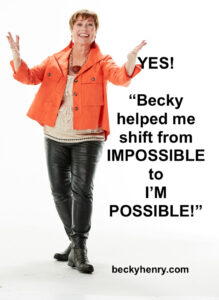re·sil·ience
noun 1. the capacity to recover quickly from difficulties; toughness.
“the often remarkable resilience of so many British institutions”
Why the topic of resilience today? A. November is National Caregivers Month and caregivers and their carees do much better when caregivers are resilient. And B. When I wrote about hearing Shannon Kopp and Dr. Ralph Carson speak on HOPE in my article on Nourishing Hope in October, I shared 12 of the keys to hope that they spoke about for caregivers and loved ones in recovery. I’ve been writing about each of those keys in my weekly posts. Today is resilience.
When I started to research resilience for this piece, I found many models and diagrams outlining; 5, 6, or 7 components of resilience. There are many charts, models, etc with fancy graphics. One consistent piece all researchers agree upon is “social connections” which didn’t surprise me at all.
In fact, social connections or lack thereof is one of the main factors that drove me to start my business, so that caregivers of those with eating disorders wouldn’t have  to experience the isolation that I did as a family caregiver.
to experience the isolation that I did as a family caregiver.
The evidence I see daily when parents and other family caregivers have the support of a community who gets it is profound in helping them to grow and have hope. Just like Dr. Carson and Shannon spoke about.
This Wikipedia definition of psychological resilience really nails it, in my opinion:
Psychological resilience is the ability to mentally or emotionally cope with a crisis or to return to pre-crisis status quickly. Resilience exists when the person uses “mental processes and behaviors in promoting personal assets and protecting self from the potential negative effects of stressors.”
We now know that humans are the only creatures that can think, act and prepare for the future. We can hope.
And we can do the reverse, worry.
Belief in hope can help undo the damage to our brains that the worry toll takes. It takes a community to believe in us so we can learn to see that we have a choice about our crisis taking us down or growing us.

Bloom like a Rose
When we have a person or people who believe in us, listen, encourage us and remind us that we’ve made it through challenges in the past, we can learn to cope with our new normal.
We can allow the experiences to destroy us or transform us. Often we cannot change the situation…what we can change is how we allow the experiences to make us stronger or better in some way or we can allow the experiences to take us down. We will never be the same again. And when we practice growing our resilience, we can blossom.
There is so much to learn about resilience that a short article hardly does it justice. So I’ll leave you with an entire book written by Caryn Sullivan, a Twin Cities writer whom I know from the writer’s group to which I belong. Caryn says, “When faced with adversity, we have a choice. We can become bitter or better. After many adversities as an attorney and newspaper columnist she wrote, Bitter or Better which you can preview here on her website.


